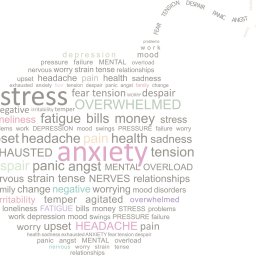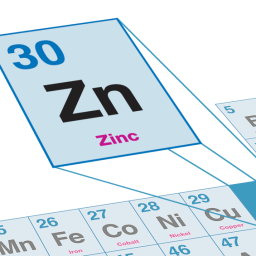Magnesium and Stress
Magnesium is sometimes considered the forgotten mineral, yet magnesium plays many crucial roles in human physiology. Magnesium is involved in numerous enzymatic reactions, some of which are vital for energy (ATP) production. Magnesium influences electrolyte levels inside cells by moderating cell membrane transport and cellsubstrate adherence. In addition, magnesium acts as a counterbalance to calcium, encouraging muscle relaxation by increasing reuptake of calcium after muscle contraction.1 Magnesium is also necessary for normal neurological function and neurotransmitter release.2 Furthermore, magnesium is a structural nutrient that maintains the health of bones and teeth.
Studies show that stress and magnesium are linked: increased stress causes urinary loss of magnesium,3 and elevated catecholamine concentrations have been shown to lower serum magnesium levels.4 In situations of chronic stress, increased intake of magnesium may be required to maintain adequate magnesium stores. Increased magnesium intake also has been shown to decrease neuronal overexcitation and improve reasoning coherence.5 Magnesium deficient diets in animals are known to correlate with depressive and anxiogenic behaviors.6
Additionally, magnesium may help to stabilize blood sugar, restore insulin sensitivity, and normalize insulin-induced changes in cortisol output. Research shows that diabetic patients are commonly deficient in magnesium.7 Supplemental magnesium has been shown to improve insulin sensitivity,8 which is thought to result from improved insulin receptor signaling.9
Magnesium deficiency is common in today’s society, as many individuals do not consume the recommended daily intake of magnesium from food. With the benefits that come from adequate intake, magnesium supplementation may be a worthwhile consideration for individuals dealing with high levels of stress and related conditions.
References
- Swaminathan R. Magnesium metabolism and its disorders. Clin Biochem Rev. 2003;24(2):47-66.
- Jahnen-Dechent W, Ketteler M. Magnesium basics. Clin Kidney J. 2012;5(Suppl 1):i3-i14.
- Mocci F, Canalis P, Tomasi PA, Casu F, Pettinato S. The effect of noise on serum and urinary magnesium and catecholamines in humans. Occup Med (Lond). 2001;51(1):56-61.
- Whyte KF, Addis GJ, Whitesmith R, Reid JL. Adrenergic control of plasma magnesium in man. Clin Sci. 1987;72(1):135-8.
- Long S, Romani AM. Role of cellular magnesium in human diseases. Austin J Nutr Food Sci. 2014;2(10)
- Singewald N, Sinner C, Hetzenauer A, Sartori SB, Murck H. Magnesium-deficient diet alters depression- and anxiety-related behavior in mice–influence of desipramine and Hypericum perforatum extract. Neuropharmacology. 2004;47(8):1189-97.
- Gröber U, Schmidt J, Kisters K. Magnesium in prevention and therapy. Nutrients. 2015;7(9):8199-226.
- Heer M, Egert S. Nutrients other than carbohydrates: their effects on glucose homeostasis in humans. Diabetes Metab Res Rev. 2015;31(1):14-35.
- Takaya J, Higashino H, Kobayashi Y. Intracellular magnesium and insulin resistance. Magnes Res. 2004;17(2):126-36.





